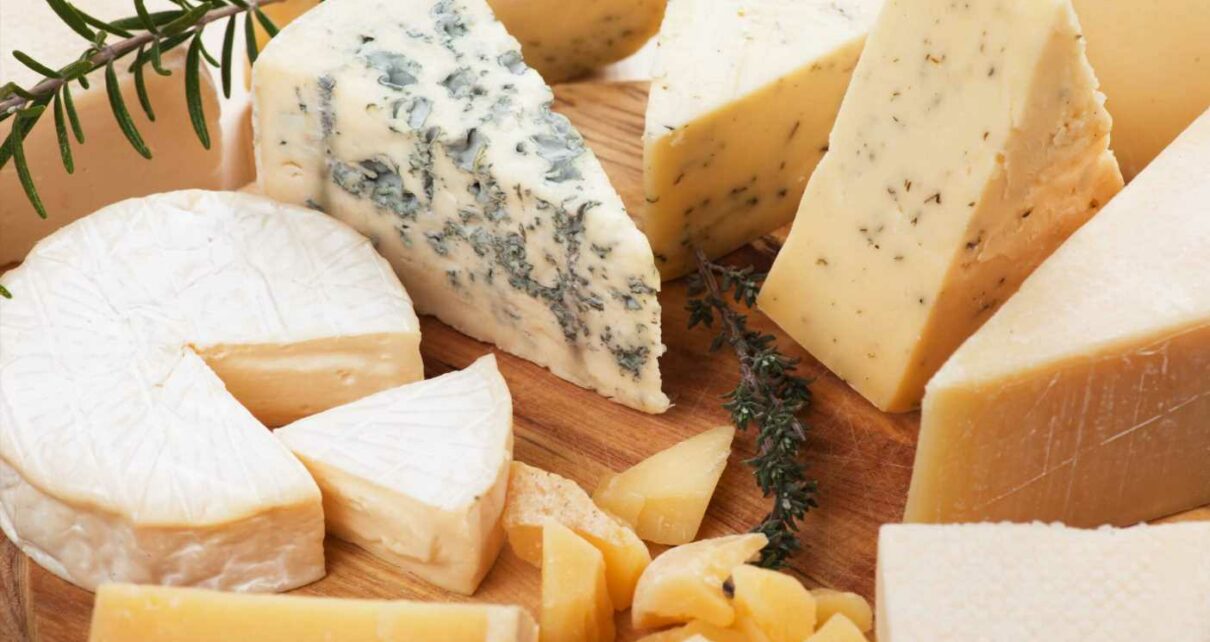BEST before dates are about quality and not safety.
A lot of different foods can still be consumed after the best before date, so what are the rules around cheese?

Can you eat cheese after the best before date?
It is safe to eat hard cheese like cheddar, parmesan, and emmental after the best before date.
Hard cheese can have a best before date of up to or more than twelve months.
However it is not recommended to eat soft cheese like brie, camembert or cottage cheese after the best before date.
Soft cheese has a shorter shelf life since it is softer and creamier.
read more on food

Brits are stuck in a food rut eating the same thing every week on a loop

Village with UK’s best beer garden – featuring incredible beach surroundings
How long is cheese good after the expiration date?
Hard cheese can last to up to six months if not opened and refrigerated.
Unopened soft cheese lasts only a maximum of two weeks, even in the fridge.
The shelf life of cheese after opening can vary from the type of cheese from seven days to two months.
Here is a list of cheese types and their shelf lives after opening:
Most read in Fabulous

Harry & Meghan finally hand back keys to Frogmore Cottage after eviction

I’m 52 but lads half my age still ask me out, says Melinda Messenger

Everyone's saying same thing about Meghan & Harry's latest faux pas

Meghan and Harry accused of ripping off latest Netflix idea from BBC show
- Blue cheese – 7 days
- Brie – 7 days
- Feta – 7 days
- Mozzarella – 7 days
- American – 1 to 2 months
- Cheddar – 3 to 4 weeks
- Parmesan – 3 to 4 weeks
How to tell if your cheese has gone off
Once the cheese smells, has a darker colour, or mould is visible it has gone off.
The rule for soft cheese is as soon as there is mould visible it needs to be thrown away.
The higher water content in these cheeses mean microbes grow quickly, which can lead to salmonella and listeriosis if eaten.
However if there is visible mould on hard cheese, you can cut it away and still eat the cheese.
Experts say that this can be done if the mould on hard cheese is white, or blue/green.
But if you are seeing red or black mould you should throw the cheese out.
How to keep cheese fresh
All variants of cheese should be stored in a dark, cool and airy space.
If the cheese comes in a waxed paper, leave the paper on, since it allows the cheese to breathe.
However if there is no paper around the cheese you can cover it with kitchen foil or cling film , as it will help the cheese breathe.
Keep cheese slices from hard cheese in a sealed Tupperware box.
It will prevent smelling.
What other foods should you ditch and are there any you can keep after the best before date?
Food with a use-by date should not be eaten after it expires.
Some foods that should not be eaten after the use-by date are:
- Fresh berries – Fresh berries can carry a parasite called cyclospora. This can cause diarrhoea, vomiting and other nasty flu-like symptoms.
- Fresh meat – Fresh meat should be consumed immediately.
- Fresh juices – Fresh juices should always be chucked after they have expired.
- Sprouts – Sprouts are grown in a warm, moist environment which means they can be prone to contamination.
- Fish – Fish that is out of date has increased chances of giving you listeriosis – a disease that causes abdominal pain, diarrhoea, nausea, and vomiting.
Read More On The Sun

Fashion fans go wild for Sainsbury’s bag which is exact Celine dupe £3k cheaper

I’m being forced to tear down my home after a neighbour reported me
Food that can be consumed after the best before date includes:
- Bread – When putting bread in the fridge it can be lasting up to two weeks longer.
- Chocolate – As long as chocolate tastes OK, it is good to keep and eat.
- Yogurt – You can usually eat yogurt for two weeks after the best before date.
- Biscuits – Biscuits can be eaten for a few weeks after expiring.
- Dried pasta – Dry pasta can last up to three years after the best before date if it is stored in a cool, dry and airtight environment.
- Canned goods – As long as cans are undamaged and storedcool away from direct light, they can last for around four years.
- Frozen vegetables – If veg is kept frozen, it can last indefinitely.
- Milk – Milk can be used as long as it tastes and smells OK.
Source: Read Full Article

